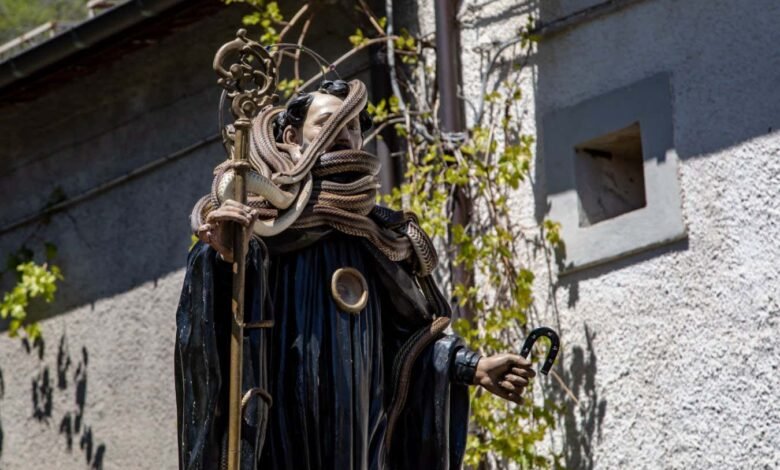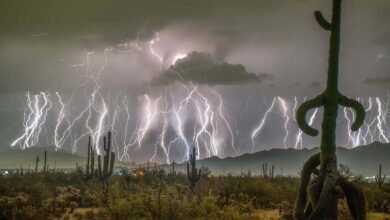Italian festival of the snake-catchers revealed in colourful photos


A statue of the saint in Cucullo, Italy, is draped with harmless local snakes
Piero Castellano
Every year on 1 May, San Domenico di Sora gets some spectacularly bizarre accessories. During a religious procession in the Italian village of Cocullo, a statue of the saint is adorned with harmless snakes (above). The origins of this festa dei serpari, or festival of the snake-catchers, may date back centuries.
Gianpaolo Montinaro, a biologist at the University of Bari Aldo Moro, Italy, was eager to study the snakes, but it took him years to convince the villagers that a long-term research project would help, rather than harm, the reptiles. Legally, the serpari can only catch local snakes, such as green whip snakes (Hierophis viridiflavus) and four-lined snakes (Elaphe quatuorlineata, shown top and below), in the weeks up to the procession. Shortly after, the animals are released (pictured bottom) at the exact spot where they were found, which leaves little time for Montinaro and his team to study them.

A researcher remove parasites from a four-lined snake’s mouth
Piero Castellano
Before each procession, the researchers transform the local museum into a pop-up health clinic for snakes. They measure each animal’s length and weight, take swabs and blood samples, and implant microchips to identify repeat visitors. They also treat wounds and remove parasites from the snakes’ bodies and mouths (pictured above).

The snakes are released where they were found
Piero Castellano
Almost 20 years’ worth of data indicates the snakes are thriving, with no sign of a dangerous fungal disease that has appeared in other European populations. We might benefit as well. “Snakes pick up microbes on the ground,” says Montinaro. “That helps us to look out for novel pathogens that could infect humans.”
Topics:
Source link




